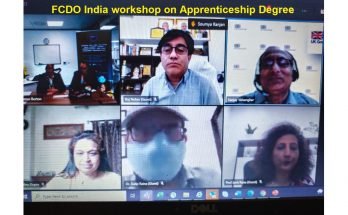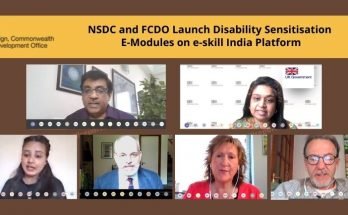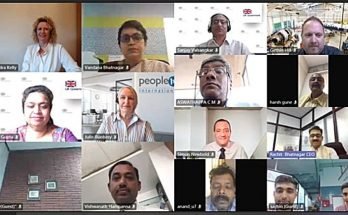Pune : A Roundtable conference was jointly conducted by Department for International Development (DFID), Govt. of UK, Automotive Skill Development Council (ASDC) and Symbiosis Skills & Open University (SSOU) to deliberate on the possible interventions that can be taken up in the Electric Vehicles space for Skill Development with mutual industry collaboration under the DFID sponsored Skills for Jobs Programme. The round table conference also involved vetting/validation of the Qualification Packs developed by ASDC.
The event saw participation from over 30 industries / academia with Institutions like Central Staff Training and Research Institute (CSTARI), Automotive Research Association of India (ARAI), SSOU’s Schools of Automobile and Mechatronics Engineering, Tata Institute of Social Sciences (TISS), Industry partners with the likes of Toyota, Mahindra Electric, Spark Minda, OLA Skilling, Tata Technologies, TATA Motors, Autobot, DIYGuru, etc.
The event started with Ms. Kaustubhi Harit briefing the audience about DFID and the SFJ Programme and the expectations from the roundtable event. She mentioned that India and UK skills ecosystem have a lot in common and we should try to leverage the best practices from each other. Mr. Arindam Lahiri, CEO ASDC spoke about the business opportunities present in the field of EVs. He spoke about the software and electronics being integrated into the training requirement and how the skilling scenario is changing. Ms. Swati Majumdar, Pro Chancellor SSOU spoke about the social acceptability and lack of vertical mobility being the two challenges hindering students from taking up vocational courses. She also invited industry captains to contribute to the academia by getting involved in training and joint work.
The event also saw OLA Skilling presenting their model, Spark Minda presenting how they hire PwDs in the automotive sector. Dr. Nick McCarthy from Cenex, UK presented to the audience how skilling in EVs is done in UK and shared his experience.
Under the DFID SFJ Programme, certain specific interventions related to creation of course curriculum and content, capacity building of trainers/assessors, CoE establishment, pilot training programs and apprenticeship were presented to the audience and their feedback was sought. Discussions with the participants gave insights on the immediate requirement on the skilling front in EV domain.
The second half of the event focused on discussions around validation and vetting of the 4 Qualification Packs prepared by ASDC. The event ended with a campus tour of the university, the pioneering skill development university of India and vote of thanks from ASDC and SSOU.



